Hyperactivity, impulsiveness, mood swings, hypersensitivity, crankiness, lack of concentration and organisation, as well as difficulty falling asleep. These are the symptoms that typically determine the lives of ADHD patients. ADHD medication usually comes with a plethora of side effects. Would cannabis be an alternative?
ADHD (Attention Deficit Hyperactivity Disorder) is one of the most common mental disorders affecting children, although it may sometimes carry on until adulthood. The diagnosis and treatment of ADHD has become a contentious issue in the last decade, with certain experts believing that childhood ADHD is currently overdiagnosed and overtreated. Interestingly, other experts believe that in adults, the condition is underdiagnosed.
There remains only one conventional treatment for both childhood and adult ADHD. The condition is most often treated with stimulant drugs such as Ritalin, generically known as methylphenidate. Alternative therapies do exist although they are often less practiced or are practiced as a complement to pharmaceutical intervention. These include diet change, herbs, vitamins, antioxidants, biofeedback and behavioural therapies.
Although the exact cause of ADHD is misunderstood, it is hypothesized to be a genetic condition. Some hypothesize that it is a developmental problem. The groups most at risk of developing ADHD are those with epilepsy, those who were born prematurely or with a low birthweight and those who incurred brain damage in the womb or after a severe head injury.
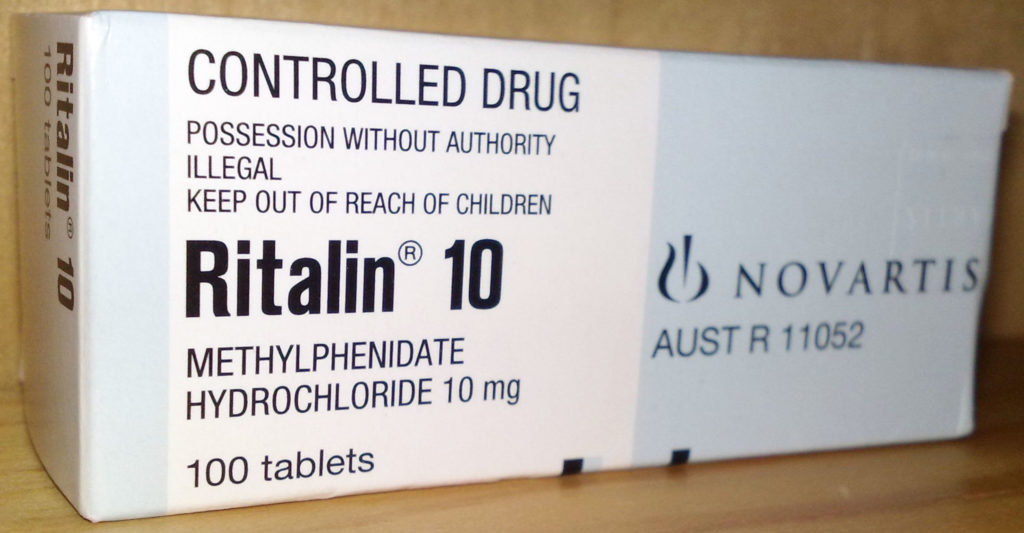
The side effects associated with Ritalin use are the biggest hurdle for patients of ADHD to overcome. While the treatment works for many, some discontinue use simply from the severity of side effects. This is why cannabis is currently being explored as a potential alternative to stimulant drugs for those with ADHD. It has showed promise, especially by token of the fact that those with ADHD are more likely to self-medicate with cannabis than other demographics.
Cannabis as a treatment for ADHD – Case studies and their results
This article will start by introducing a number of case studies into cannabis and ADHD that were conducted in the past.
Successful cannabis treatment of therapy-resistant ADHD in adults
A clinical study included 30 adult patients suffering from ADHD. They all exhibited a resistance to traditional pharmacological treatment and were granted permission to use cannabis. For the study, the anonymous medical records of all 30 patients were analysed. Researchers established that cannabis resulted in the improvement of a variety of symptoms, including better concentration and sleep and reduced impulsiveness.
The 28 male and 2 female patients were between the ages of 21 and 51. For 63% of them, ADHD was first diagnosed during adulthood, while for 37%, ADHD began in childhood.
The patients that were diagnosed between the ages of 6 and 13 had been treated before with methylphenidate, which is sold under the brand name Ritalin, among others. Other pharmacological therapies included atomoxetine, dexamphetamine (Attentin), lisdexamphetamine, and amphetamine juice. It was established that these treatments were abandoned, mostly because of side effects and often on the grounds of insufficient effectiveness. Eight patients took stimulants in combination with cannabis, while 22 patients only used cannabis.
The conclusion of this case study was that “for adult patients with ADHD, who experience side effects or do not profit from standard medication, cannabis may be an effective and well-tolerated alternative.”
Many people suffering from ADHD treat themselves with cannabis
According to research, people who suffer from ADHD are more likely to self-medicate with cannabis and other remedies compared to other demographics. In 2012, the Psychology Department of the University of Albany in New York conducted a study with the purpose of identifying which subgroups of ADHD patients are more likely to self-medicate with cannabis. The data of 2811 ADHD patients was analysed, originating from a survey among American cannabis users.
What is meant by ‘subgroup’ in this context? Typically, there are three different ADHD subgroups, although the researchers only included the first 2 in this study:
- ‘Fidgety Philip’, mostly hyperactive and impulsive;
- ‘Johnny Head-in-the-Clouds’, mostly attention deficient;
- Mixed type: both attention deficient and hyperactive.
Researchers established that for non-daily users, there was no difference in the way subtypes used cannabis to treat their symptoms. The researchers concluded that “these results have implications for identifying which individuals with ADHD might be more likely to self-medicate using cannabis.” In addition, the scientists made it clear that said results support further research into the relation between cannabinoid receptors and regulatory control.
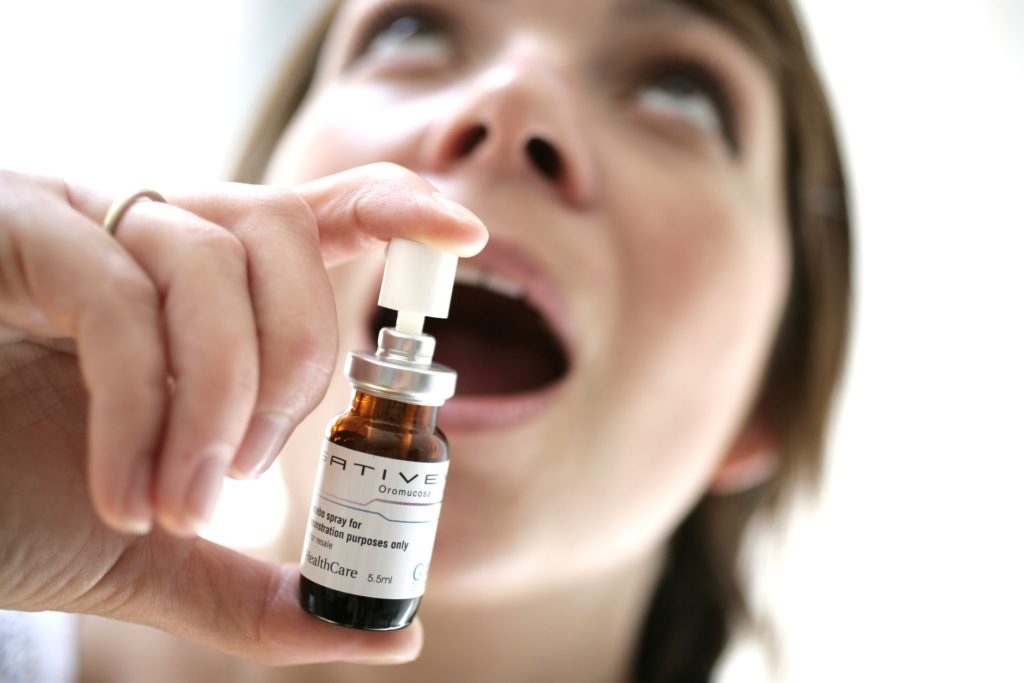
Sativex shows potential for ADHD symptom management
In 2017, the Institute of Psychiatry, Psychology and Neuroscience in the UK published the first ever randomised, placebo-controlled study on the effect of cannabinoids for adult ADHD patients. A total of 30 participants were examined, with 15 in the placebo group and 15 in the active group. The primary outcome was cognitive performance and the secondary outcome was ADHD symptoms and emotional symptoms. The active group was given Sativex, a pharmaceutical cannabinoid oromucosal spray containing 2.7mg THC and 2.5mg CBD.
Although the active group showed better scores for the first outcome, it was not statistically significant to say that cannabinoids enhanced cognitive performance. However, for ADHD and emotional lability symptoms, Sativex was associated with medically significant improvement in hyperactivity/impulsivity and inattention.
Researchers concluded that adult ADHD sufferers may be good candidates for cannabinoid therapies. They admit that this study does not provide definitive results but provides sufficient preliminary evidence supporting the self-medication of ADHD with cannabis.
Positive effect of moderate cannabis on cocaine-addicted ADHD patients
In a 2006 study conducted by The New York State Psychiatric Institute, researchers found that cannabis may be beneficial for ADHD patients who have comorbid cocaine addiction. The study was held among adults in the age group of 25 to 51, the majority (69%) of whom used cannabis. The patients subjected themselves to a treatment with methylphenidate for their ADHD symptoms and cocaine addiction. The effect of cannabis on continuing the therapy and abstaining from cocaine was studied.
57% of the patients who consumed cannabis moderately were still part of the patient group after 14 weeks of treatment. Of the patients who did not use cannabis, only 25% was still part of the group by week 14, compared with 39% of the regular/strong cannabis users.
Furthermore, few patients achieved cocaine abstinence, suggesting that this group of patients was difficult to treat overall. There was, however, significantly better treatment retention among intermittent/moderate cannabis users compared to abstainers and heavy/consistent users.
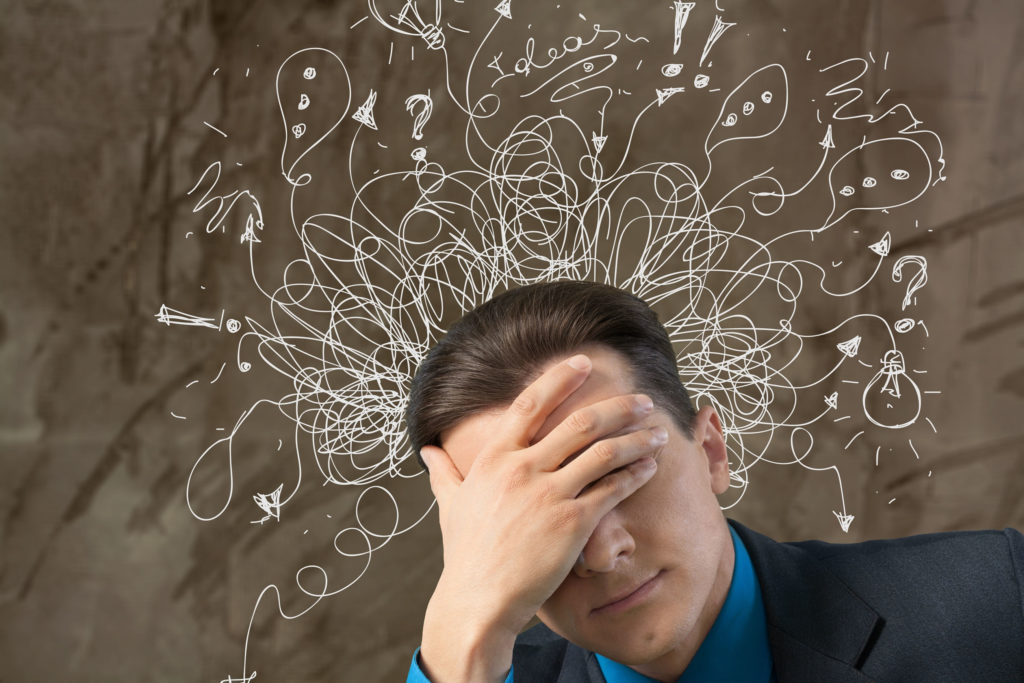
In adolescents, cannabis use does not exacerbate symptoms
In this study published in NeuroImage: Clinical in 2017, researchers investigated the effects of adolescent cannabis use on ADHD and brain functional architecture. The authors of this study state that childhood ADHD diagnosis is associated with an increased risk of substance use and abuse throughout adolescence and childhood.
The authors also admit that they expected cannabis to have negative effects for those adolescents with ADHD. However, their findings are that cannabis did not exacerbate ADHD symptoms. They do not state that cannabis use improved symptoms, but that it did not worsen the matter. Finally, they suggest that this finding needs to be corroborated with other, large scale studies.
Tourette’s Syndrome and ADHD – improvement with cannabis
In 2010, German scientists investigated the effects of THC on a 15-year-old boy with ADHD and comorbid Tourette’s syndrome. The adolescent was taking stimulant medication for the treatment of ADHD, but then experienced stimulant-induced exacerbation of tics associated with Tourette’s syndrome.
Tics were significantly reduced by THC administration without adverse side effects. This made it possible for the adolescent to continue stimulant medication for ADHD symptoms without worsening Tourette’s symptoms. The researchers suggested a mechanism of action which included release of neurotransmitters such as dopamine and gamma-aminobutyric acid.
Cannabis vs. stimulant drugs
What can be agreeable and effective ADHD medication for one person, can have no effect or the wrong effect on another individual; or it has so many side effects that its use has to be discontinued. Ritalin is the most commonly prescribed ADHD medication, and for this reason it will be used as a comparison to cannabis as a treatment for ADHD.
What is Ritalin?
Ritalin is a central nervous system stimulant and a derivative of the catecholamines class of drugs. These have special pharmaceutical significance, as new and more effective medication can be manufactured from derivatives of existing drugs.
Methylphenidate (in short: MPH) was synthesized for the first time in 1944 and is mainly used as a medicinal treatment for ADD, ADHD and narcolepsy.
In most countries, Ritalin is a prescription drug subject to specific prescription requirements.
How does Ritalin work?
Methylphenidate stimulates and excites. It suppresses tiredness, increases short-term physical performance and inhibits appetite. Furthermore, methylphenidate increases the availability of dopamine and, to a lesser degree, norepinephrine by inhibiting their reuptake. In terms of this property it is similar to cocaine.
Side effects of Ritalin use
The most commonly reported side effects of Ritalin include:
- Nausea
- Anxiety
- Sleep problems
- Loss of appetite
- Increased heart rate
- Sweating
- Nervousness
Some patients will only experience some of these side effects while some will experience none. On the other hand, some will discontinue use simply because of the severity of side effects.
Lesser talked about, and therefore lesser studied, side effects of Ritalin use include emotional and behavioural side effects.
In this literature review, 44 studies were investigated for potential emotional or behavioural side effects of Ritalin use. The author admits that in most studies on the effects of Ritalin medication, little to no attention is paid to the emotional or behavioural side effects. It is often mentioned in the studies, but rarely investigated further. The most common emotional side effects were anxiety, irritability and overall mood alterations. The studies did not provide information as to whether these effects discontinued after Ritalin use.
A large overdose of Ritalin can result in over-stimulation of the central nervous system and delirium. In fact, acute Ritalin toxicity can be compared and likened to acute amphetamine toxicity. There may also be psychiatric symptoms in the event of a Ritalin overdose including psychosis, confusion and hallucinations.
Finally, as the effect of Ritalin intake begins to wear off, the original symptoms may worsen significantly, including unwanted behaviour. This is called the rebound effect.
Ritalin criticised
The global independent Cochrane Collaboration network has closely examined ADHD medication such as Ritalin and recently concluded that:
- the effectiveness of Ritalin and other similar stimulants may improve teacher‐reported general behaviour, teacher‐reported ADHD symptoms, and parent‐reported quality of life among children and adolescents diagnosed with ADHD; and
- the quality of the studies into the deployment of these ADHD drugs is unsatisfactory.
It summarizes: “Although Ritalin has been prescribed for over 50 years, as yet no comprehensive, systematic and therefore scientifically reliable studies into its benefits and dangers have been conducted, as with other psychotropic drugs”.
Rather cannabis, then?
The research about cannabis and its effect for ADHD patients is extremely limited. However, as described in detail below, current evidence suggests that it may assist in some of the emotional side effects of methylphenidate use, and at the very least, does not exacerbate ADHD symptoms. This is also somewhat demonstrated by the fact that ADHD patients are more likely to self-medicate with cannabis.
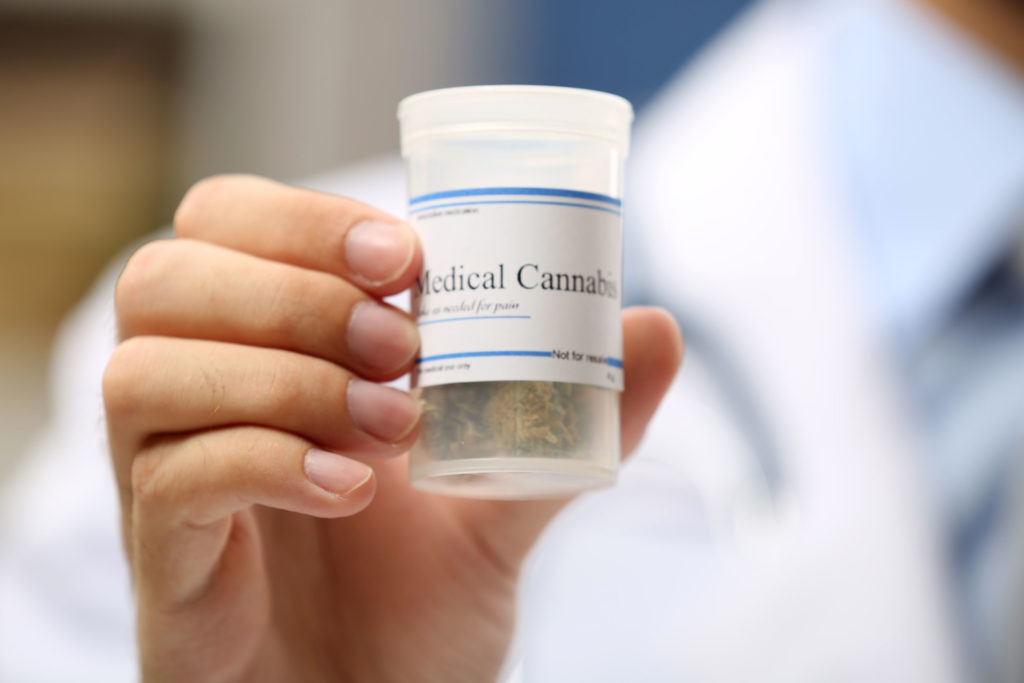
Even if cannabis does not assist in the cognitive performance of ADHD patients, it may reduce symptoms of hyperactivity, inattention and impulsiveness. In addition, if used as a complementary medicine, it may reduce anxiety or depression associated with ADHD or Ritalin use. Finally, ADHD patients report that cannabis helps them to unwind and fall asleep at night.
ADHD rarely in isolation – associated disorders
ADHD rarely presents itself in isolation, but rather comes with comorbid conditions. A closer look reveals that bipolar disorders (up to 6% comorbidity rate), depression, compulsive behaviour, social behaviour disorders, anxiety, sleep and obsessive-compulsive disorders, as well as illicit drug abuse, often accompany ADHD. However, some of these comorbidities may be associated with the pharmaceutical treatment of ADHD as investigated earlier; anxiety, sleep disorders and depression may be caused by treatment rather than strictly being comorbid conditions.
Illicit drug use, on the other hand, is associated with childhood ADHD diagnosis in a strong way. Compared with subjects without ADHD, children with ADHD are:
- twice as likely to have a lifetime history of nicotine use
- nearly 3 times more likely to report nicotine dependence in adolescence/adulthood
- almost 2 times more likely to meet diagnostic criteria for alcohol abuse or dependence
- approximately 1.5 times more likely to self medicate with cannabis
- twice as likely to develop cocaine abuse or dependence
- more than 2.5 times more likely to develop a substance use disorder overall.
Dopamine: The happiness hormone and illicit drugs
The tendency towards drug abuse among ADHD patients can be explained by low levels of dopamine (the happiness hormone) in their bodies.
Many recreational drugs, such as alcohol, tobacco, cocaine and cannabis, cause an increase in the user’s dopamine level and specifically target this signalling system. However, cannabis only has a relatively mild influence on dopamine, which could explain the substance’s low level of dependency potential.
Cannabis use still affects the levels of dopamine, although more slightly. This happens because it cooperates with the dopamine binding sites that can be found on several neurons in the brain. Prescription drugs such as Ritalin work identically.
“Cannabis appears to treat ADD and ADHD by increasing the availability of dopamine. This then has the same effect but is a different mechanism of action than stimulants like Ritalin (methylphenidate) and dexedrine amphetamine, which act by binding to the dopamine and interfering with the metabolic breakdown of dopamine.” – Dr David Bearman, M.D.
The importance of the endocannabinoid system
The endocannabinoid system plays an important role in how incoming information is conveyed onto dopamine neurons. It is therefore hypothesized that endocannabinoid function plays a role in ADHD, whether by diagnosis or by treatment. This interdependence seems to have been altered in ADHD patients. In ADHD examples, there is a dysfunction of the FAAH enzyme, responsible for the degradation of anandamide, a natural endocannabinoid. This endocannabinoid also reduces the activity of the dopamine transporter, therefore implying a connection between ADHD, anandamide and the endocannabinoid system.
It was established that the correct functioning of the endocannabinoid anandamide and 2-AG, as well as of the corresponding cannabinoids receptors themselves, is essential during three distinct developmental stages (i.e. embryonic implantation, prenatal brain development and postnatal suckling). This also applies to pre-natal development.
The endocannabinoid system is involved in development and behaviour, and disruptions may be a part of the development of ADHD. Scientists concluded from a 2011 study that endocannabinoid misfire plays a role in ADHD development, and that therapeutic strategies that influence the endocannabinoid system may be effective as treatment for ADHD.

Is it safe to use Ritalin and cannabis at the same time?
Although research suggests that it is somewhat common for ADHD patients to search for relief in cannabis, even if they are using Ritalin, there is no mention in any of these studies as to the safety of using both substances at the same time.
In one exploratory study, 16 adult subjects free from psychiatric illness were given oral doses of THC and methylphenidate. There was also a control group, so some subjects received placebo. Researchers found that methylphenidate reduced reaction time but THC mitigated this effect by increasing commission errors. The researchers also stated unique effects on cardiovascular function.
In another study conducted all the way back in 1973, the interaction between amphetamines and cannabis was explored. The subjects did not have ADHD or any other psychiatric illness, and it was not the purpose of the research to investigate the interactions specifically on ADHD patients. However, methylphenidate is an amphetamine-based substance and this study is worth mentioning.
The researchers found that there was no significant interaction between the two other than that under the effect of amphetamines cannabis increased the pulse. For mood, cannabis has no effect on activity levels after amphetamine use even though cannabis is thought to decrease activity levels.
Although the research does not point towards dangerous or life-threatening interactions between amphetamines and cannabinoids, it is also very limited at the same time. On top of that, these interactions have not been studied in the context of ADHD patients. Therefore, ADHD patients should exercise caution when using cannabis and Ritalin together and consult a physician.
Reports from patients and physicians about the deployment of cannabis for ADHD
Below we have provided a few anecdotal reports on the use of cannabis as a treatment for children, adolescents and adults with ADHD, both as alternative and complementary medication:
“[From prescribed stimulant medications] I remember having headaches all the time to the point where I wasn’t able to sleep.” Also, Antonio had very poor appetite. With cannabis, things have improved somewhat. The side effects of the stimulants became less severe and his ADHD symptoms were noticeably reduced. “For the first time ever, I was in the state where I could really get my mind together.” – Antonio Rodriguez (Cannabis and ADD/ADHD)
“It helps combat the problems with falling asleep as a result of methylphenidate use (Mediket) and depression. Thanks to cannabis, I can be calmer even without Mediket. My social environment and family in particular benefit from that. It allows me to wind down, despite Mediket and ADHD. It diminishes the hyperactivity and hurriedness as a result of Mediket and ADHD. It can compensate the ADHD-induced lack of focus in certain situations better than Mediket can. It enables me to introduce Mediket-free periods in order to not feel like a live wire every now and then. It makes me placid and less hurried.” – Maximilian Plenert (How does cannabis help with ADHD?)
“Almost all patients that use cannabis therapeutically report that it helps them to pay attention during lectures and to be able to better concentrate instead of thinking about various things simultaneously. Furthermore, it helps them to keep up with their assignments and do their homework.” – David Bearman, M.D., physician and cannabinoidologist
“Cannabinoids are a totally viable alternative for treating adolescents suffering from ADD and ADHD. …Why would anyone give their child an expensive pill… with unacceptable side-effects when you could go out into the garden, pluck a few leaves from a plant and brew him or her a nice cup of tea instead?” – Dr Claudia Jensen, paediatrician and clinical instructor at the University of Southern California.
“While some apply preconceptions that marijuana exacerbates ADHD, almost all California cannabinologists believe cannabis and cannabinoids have substantially improved the lives of ADHD sufferers, and with less negative side effects than common stimulant drug ADHD treatments.” – David Bearman, M.D.
Although case studies into the deployment of medicinal cannabis for the treatment of ADHD exist, more scientific substantiation of the results obtained so far is required. The justice system has been an obstruction to further research into the effects of cannabinoids on patients with ADHD. However, the legalization movement is expected to boost cannabis research, especially in the USA where hemp has now been legalized.
As we move forward, cannabis is being taken more and more seriously as a viable therapeutic agent for multiple conditions. Public education has become a prime factor for the cannabis industry, and perseverance is required to properly integrate cannabis into medical research and practice.
- Disclaimer:This article is not a substitute for professional medical advice, diagnosis, or treatment. Always consult with your doctor or other licensed medical professional. Do not delay seeking medical advice or disregard medical advice due to something you have read on this website.












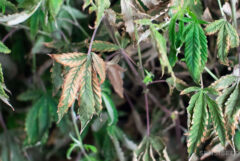


I like how this article was written so carefully with citation of sources.
I did notice, however, when describing the 2015 study of 16 adult subjects using both methylphenidate and THC it might be slightly misleading. Namely:
“Researchers found that methylphenidate reduced reaction time but THC mitigated this effect by increasing commission errors. The researchers also stated unique effects on cardiovascular function.”
Reduced reaction time by itself, without decrease in accuracy, usually means someone is able to respond faster to the cognitive test. Increased commission errors means that the individual is making more false positive mistakes – meaning they are more likely to react when there is no stimuli present.
To be clear, with the test result itself there are also nuances: shorter reaction times with higher error rates indicating impulsivity. Increased commission & omission errors suggest greater inattentiveness. The desirable scenario is that an individual has faster, and more accurate, reactions. From what I understand so far, stimulants such as methylphenidate may improve reaction speed but not accuracy.
There is no statement on whether an increased heart rate as unique is a positive thing, which from what I understand is usually not.
It would be interesting to see if there are more evidence on interactions with methylphenidate and CBD.
Hi Grace,
Thanks for your comment and your positive feedback, and your insight into this complex topic. We are continuously checking and updating the articles on our blog, and I have passed your comment to the team. The date of the most recent update can be found at the top of the article.
Thanks again, and I hope you continue to enjoy the blog.
With best wishes,
Scarlet
This: “although it may sometimes carry on until adulthood” is dumb as hell. ADHD is a neurodevelopmental disorder, if you’re suddenly “cured” of your adhd at 18 years old, you probably didn’t have ADHD to begin with. Highly miselading.
Hi,
If you read the sentences immediately following the one you quote, you will see that we state “The diagnosis and treatment of ADHD has become a contentious issue in the last decade, with certain experts believing that childhood ADHD is currently overdiagnosed and overtreated. Interestingly, other experts believe that in adults, the condition is underdiagnosed.” Further in the article, regarding the causes: “Although the exact cause of ADHD is misunderstood, it is hypothesized to be a genetic condition. Some hypothesize that it is a developmental problem.”
Because we take our responsibility to provide up-to-date factual information very seriously, this article (as all our articles pertaining to medical issues) has been reviewed by a qualified medical doctor, Dr Sanjai Sinha, who is an academic faculty member at Weill Cornell Medicine in New York.
I hope that this sets your mind at ease, and that you continue to enjoy the blog.
With best wishes,
Scarlet
My psychiatrist was not happy about my weed use and drug tested me till I pissed clean so he would then prescribe me Ritalin.
I want my weed back, I’m basically taking speed now. Seems to make me get through boring things, helps my mood and have noticed it gets rid of chronic pain.
Still want my weed back at least for easy sleeping, got an anti psychotic instead.
Under “What is Ritalin” it states that Ritalin was first synthesized in 1994. This is incorrect. It was first synthesized in 1944. I figure it is a typographical error.
Hi Mark,
You are absolutely right, thanks for pointing that out! I will amend the articles accordingly.
With best wishes,
Scarlet
totally dude..
I was diagnosed with add/adhd at age 11 i tryed cannabis for the first time at age 13 im 25 now i still smoke everday i will always choose cannabis instead of takingung adderal when i was prescribed those i never uste to eat sleep your always ao quit i love my cannibis and i suggest it to everyone with this medical symptom
I have add I would like to try some.
Amazing article…. are there plans for an updated version that includes new research since this was written?
Works for me.
I wasn’t diagnosed until a few years ago and by then I had already suffered from addiction 15 years. Cannabis has replaced both ADD and anxiety meds, helped me get sober, and saved my life.
Thank you for this article.
being bipolar, PTSD , and ADHD/Add, I just can’t stand the pills. I don’t smoke or do heavy drugs. I’ve been hospitalize (mental health) , because I quite pills or the dosage is wrong. Please work on this pill if not for me then my kids.
Thank you
I would like some more info on this my 11 yearold son id adhd
i use to smoke right before school and my first two class i went to i could focuse more
Who cares if the pill is one thing or another. Just a pic for reference…
My son has ADHT we live in SA could i not get the tablets? would really help him
thanks
I have been looked down on most of my life, once labeled in school as a child, school was the worse because I was diagnosed as ADHD and Bipolar disorders and was placed in special Ed or EBD all the way through till I dropped out cause I still didn’t feel I was getting the education I needed, the medication never helped although my mother always said different. later on I did prove everyone wrong by earning my GED and attended some college for my bachelors in photography without special help. Anyhow my mother forced me to take Ritalin, Paxil, deppicote and so many other pills and tests from the age of 3 until age 16 when I was first introduced to cannabis by a cousin before school. I remember skipping out on meds for a few days and replacing it with little smokes, at age 17 I moved out of home quit all perscribed medicines and got simple work and made it happen, continued smoking most of time. Still to this day I continue to beat all statistics against me by yes staying out of legal trouble, holding stable jobs no matter how bad that boss pisses me off, trying to finish college while enjoying my illegal cannabis use. I have never used any other drugs and I don’t drink alcohol, I stay out of trouble mind my P’s and Q’s but take that massive risk everyday to self medicate herbaly instead of taking man mixed and altered chemicals with tons of side effects like depression and sucide sounds fun Doc:)
Cannabis has helped me for 12+ years with both issues, specially my bipolar which is most noticeable by my mood swings that go full swing around time changes and my messed up sleep patterns. Without my herbs only God knows where’d I be, and it’s my body so I feel it’s my choice what goes in, my childhood memories were lost due to the medications but my experiences made me who I am today. Happy, free and ready for that next step.
Stratigraphy is strattera
I had been diagnosed with” bad”ADD at age 40.
I have done skydiving, scuba etc. Super focus probably helped regarding that.
Tried concerts but got symptoms like a speed user.
Tried stratigraphy as well yet got a lot of side-effects from it. Maybe I am just more aware of my environment…
What strain or oil should I try?
I am living proof
i have add and smoking marihuana helps
Is good to read articles and stuff, but can you Seshata please tell me where do you find all this information? I mean, is it endorsed by a scientist?
i am 36. when i was about 10 i was diagnosed with add/adhd. when i was 13 i found cannabis. and i have been using it everyday since.
I have dealt ith add most of my life and also my children and I know from experience that weed help calm you down in both me and my adult children I just wish people could stop looking at weed as a drug that hurts people like herion and look at it as a natural remedy for many of todayhealth issues
I would like to find out more about this product.
Most likely, you should atleast give it a go, however listen to your son, and do what he thinks works best, i wish my mother did.
I was diagnosed with adult ADHD about two and a half years ago at the age of 30 and I too use cannabis to help alleviate my symptoms in conjunction with more ‘typical’ prescribed ADHD medications (previously Methylphenidate and now Atomoxetine).
I personally find that Sativa dominant strains work much better for my symptoms than Indica, but that’s not at all surprising to me when taking into account Sativa’s more stimulant properties
Is this available in Australia yet as I a a daughter that has adhd
Great article!
As a special needs teacher (and Carpenter and a former Peace Officer), I can really relate to this article.
You did your due diligence Seshata, and I respect your journalistic ability and professionalism.
The bottom line is – you have a new fan in your corner.
Kindest Regards,
D. Farang
I have adhd i get real Moody
Very interesting reading more information would be good
too bad the picture depicting the adderall isn’t a real pill, nor is it adderall. the journalist who posted this is a complete fucking idiot. The real pill in that picture is blue (photoshopped to look green) and the pill is an amphetamine used to treat narcolepsy/adhd (but not adderall)
Who cares, Potato Johnson, lighten up! Geez….
Hello Potato
The pills in the picture have not been photoshopped, they appear green because of the light shining through the yellow container (blue and yellow make green). They are generic Adderall equivalents made by a company called Tyva, and are used to treat the same issues as Adderall, which is itself an amphetamine. Due to the prevalence of the prescription of Adderall and generic Adderall equivalents, the name Adderall has come into popular usage to mean any medication that meets the same chemical parameters, is prescribed for the same reasons and causes the same effects – much as the name Hoover has come to mean ‘a vacuum cleaner’.
You should really do some research before you start insulting journalists.
Best wishes,
Scarlet
My son has really bad adhd do y’all think that would work for my son?
What a great story! I wish I lived in Germany, as its one of the only places that ADHD patents human rights are respected enough to allow them to use cannabis when the pharmaceuticals have failed. The only way for most ADHD sufferers around the world to gain legal access to this vital medicine is for clinical trials to be conducted. Please visit http://www.cannabisforadhd.org to support this project to conduct clinical trials of cannabis to treat ADHD. Together we can fix this!